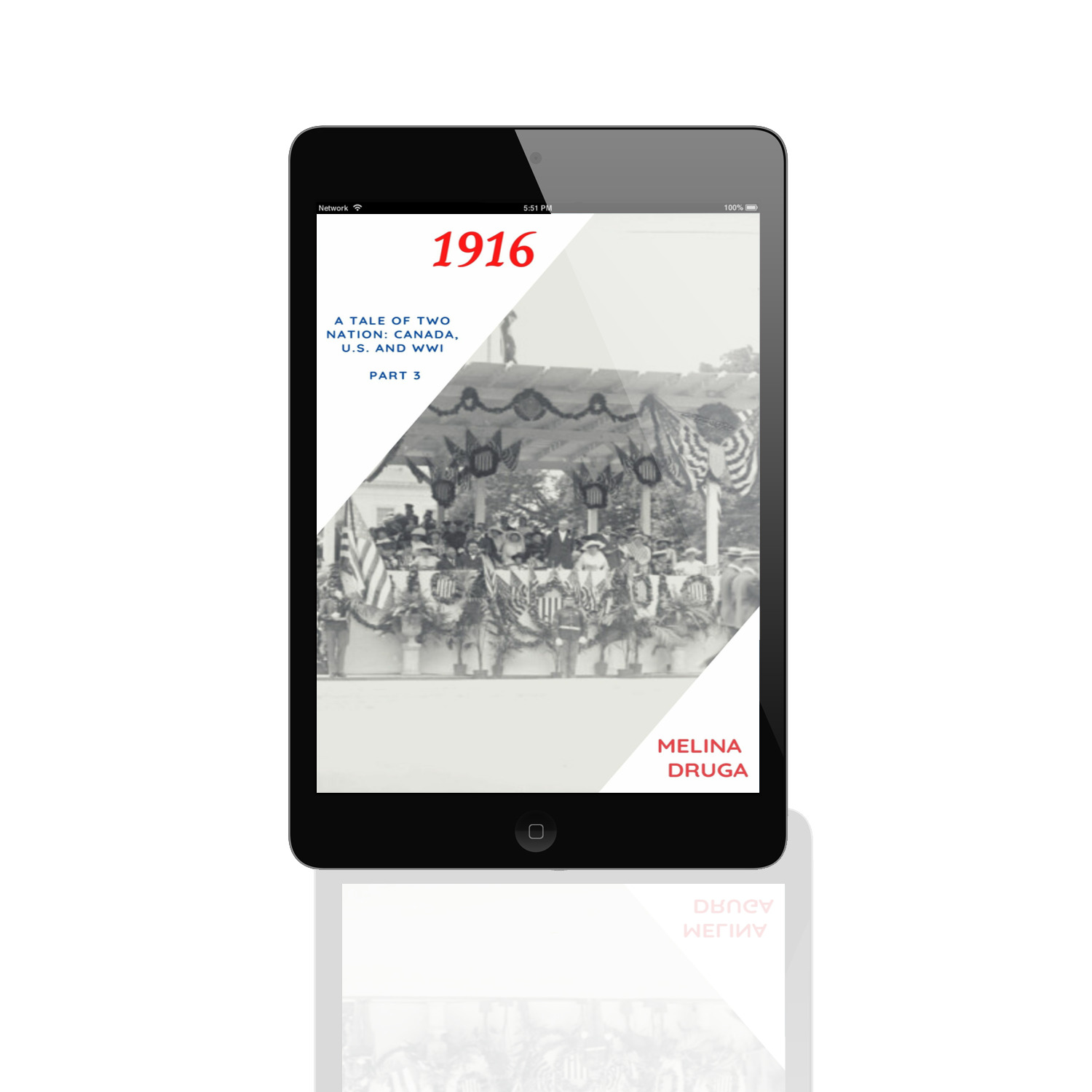
An Excerpt of 1916
An excerpt from 1916 by Melina Druga
On Election Day in the United States, Nov. 7, both Democrats and Republicans were confident of victory. Wilson was in Princeton, New Jersey, staying at his home, Shadow Lawn, and Hughes was in New York City, staying at the hotel serving as his campaign headquarters. Hughes would vote prior to breakfast, around 7 a.m., and both candidates would wait with their families to hear the returns.
If states’ voter registration records were to be believed, Hughes was going to win in a landslide. Nationally, there were 10.9 million registered Republicans, 8.7 million Democrats and 569,537 Progressives.
Bookmakers on Wall Street were extremely busy. One million dollars had been wagered the day before Election Day alone and about $7 million total. The largest bet came from a man who would lose $300,000 if Wilson lost. The odds were 10 to 9 that Wilson would win and 10 to 7 on Hughes.
The weather was expected to be mild and dry in most parts of the country. This hopefully would drive up voter turnout that had been plummeting for decades. During the 1912 race, voter turnout was expected to be between 17 million and 18 million men. However, turnout was actually 3.5 million less, and this figure is 11 million less than the total number of males of voting age in the country and represented only 15.7 percent of the population.
Taxes and other financial remedies had been suggested as a means of increasing turnout.
“The compulsory vote advocate of today sees in the decline in the ballot a drifting surely to a government of a few people by a few people for a few people,” The Washington Post said.
Both Sides Declare Victory
The early returns showed a Hughes lead. Wilson remained cheerful and went to bed confident the western states would swing the vote in his favor.
Hughes napped until early evening. The telegraph machine in the hotel was busy for hours, and Hughes was pleased by what he saw, although he gave no official statement. A large electric sign visible from the hotel also showed returns. When Hughes went to bed for the evening at 1:30 a.m., both he and his family believed he had been elected.
In Washington, 100,000 gathered gleefully in the streets outside the city’s newspaper offices to hear results and did not disperse until it looked like a Hughes victory. The crowds mostly were problem-free with less disturbances than in past election years, the exception being pickpockets and a few minor car accidents on Pennsylvania Avenue.
Despite the confidence on both sides, Wednesday morning the election results were too close to call and both parties claimed victory.
“We ask only what is fair,” Republican committee chairman William Willcox said. “We only want what we are entitled to, and what we are supposed to have.”
Both parties were in constant communication with the states, hoping to hear updated results.
The fact the final votes weren’t tallied didn’t stop newspapers from calling a winner. Some declared Wilson victorious. The Washington Post called the election for Hughes.
Radio towers in Arlington, Virginia, transmitted the message to the world that Hughes had won the election and messages of congratulations were received in return.
Democratic Party leaders refused to concede, reminding the media of the election of 1892 that was too close to call until the next day.
Depending on whose estimates were to be believed, Wilson had as few as 270 electoral votes or as many as 313. Hughes had an estimated 284.
Wilson was winning in Ohio by 9,939 votes, but more than 3,000 precincts had yet to report. Many other states also had yet to finish counting votes.
Both parties waited, and two days after the election, the outcome still was uncertain.
